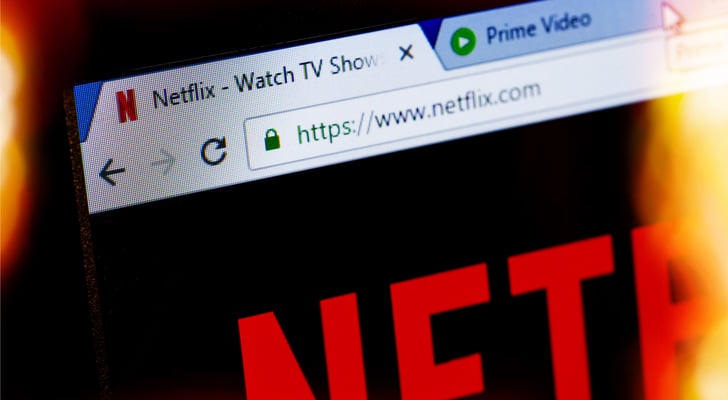Few, if any, investing acronyms have the popularity of FANG – Facebook Inc. (NASDAQ:FB), Amazon.com Inc. (NASDAQ:AMZN), Netflix, Inc. (NASDAQ:NFLX) and Google parent Alphabet Inc. (NASDAQ:GOOG GOOGL). And there is no denying that each FANG stock is a growth stock and that growth stocks usually trade at premiums to the broader market.
Currently, in order, Amazon, Facebook and the two share classes of Alphabet combine for 13.92% of the S&P 500 Growth Index. That index assigns a weight of 1.15% to Netflix.
All four stocks are also members of the NASDAQ-100 Index (NDX), a benchmark that often trades with higher earnings multiples than the S&P 500 or the Russell 1000 Index.
Put simply, investors looking for value plays will rarely, if ever, see names such as the FANG stocks labeled as value fare. The flip side is that while FANG stocks historically trade at earnings multiples beyond those of the broader market, that does not mean FANG members are perpetually excessively valued.
Let’s look at how reasonable valuations are on FANG stocks on a case-by-case basis, starting with Amazon.
Amazon May Be Shakier Than You Think

With a market value of more than $782 billion as of this writing, Amazon is third-largest member of the S&P 500. The e-commerce giant has been a public company for just over two decades and a case can be made that over that time, Amazon has been richly valued nearly all of the time.
However, this FANG stock’s performance has justified the rich multiples. Amazon traded for around $200 in late 2010. Today, the stock flirts with $1,600.
Still, some investors believe Amazon is the lone FANG stock that is not reasonably valued.
“A lot of these FANG stocks with the exception of Amazon support very, very reasonable valuations relative to their growth rates,” said Omega Advisors CEO Leon Cooperman in an interview with CNBC. “The biggest concern I have frankly is government intervention. The government looking at their success and dominance and sticking their beak into their business.”
The consensus forward price-to-earnings ratio on Amazon is 125 with a price-to-book ratio of almost 24.4, according to Morningstar data. Said another way, Amazon’s P/E is more than five times that the current multiple on the NASDAQ-100.
Facebook Shakes It Off

This year, Facebook has easily been the most controversial FANG stock. Shares of the largest social media company tumbled amid the Cambridge Analytica scandal, prompting political scorn and some unique proposals from investors and others.
Corporate controversies are not always a commentary on a stock being a value play, but in the case of Facebook, investors did use the aforementioned swoon as a buying opportunity as the stock has reclaimed nearly all of the losses incurred from February through early April.
Cooperman told CNBC: “Facebook can grow its earnings at 20 percent per year and trades around a 20 times this year’s earnings versus the S&P 500’s 5 percent growth and 17 times earnings.”
The consensus forward P/E on Facebook is just under 25 while the price-to-book ratio is less than 7, according to Morningstar data. Those are reasonable numbers in tech/growth/FANG stock parlance.
Netflix Doesn’t Deserve the Hype

Like Amazon, Netflix has a reputation for often being richly valued. And like Amazon, Netflix justifies its lofty multiples. For example, shares of Netflix have more than doubled over the past year. Netflix has become profitable, but its cash burn rates still irk some analysts and investors.
Currently, Netflix trades at almost 115x earnings and 11.65x sales. Depending on one’s view of “reasonable,” Netflix probably is not reasonably valued. It certainly is not inexpensive. This FANG stock could become more attractively value with significant subscriber additions, which would improve margins. Additional debt reduction efforts would help the cause as well.
“As a deep value investor, Netflix sticks out like a sore thumb,” said Carter Henderson of Henderson Capital Group in an interview with Forbes. “Their valuations are incredibly high, I believe most of their performance has come from momentum and due in large part because they are grouped into the ‘FANG’ stocks.”
Google Is in the Catbird Seat
This might be an example of a FANG stock that is reasonably valued. Morgan Stanley recent said Alphabet’s YouTube alone is worth $160 billion. That is more than the market value of Netflix. Plus, the average analyst price target on Alphabet is $1,275. Assuming that forecast is close to being accurate, GOOGL looks tempting.
Like other FANG stocks, Alphabet does not spend much time as an inexpensive stock. It probably never will. Several of the company’s valuation metrics have recently experienced modest increases. Alphabet has $4.3 billion in free cash, confirming a long-running history of sturdy balance sheets.
With a consensus forward P/E of 24.45 and a price-to-sales ratio of 6.46, this FANG stock is pricey relative to the broader market, but those numbers are not high relative to Alphabet’s long-term averages. By those metrics, Alphabet is attractively valued compared to its long-term valuation metrics.
Google’s first-quarter revenue rose nearly 26% while earnings jumped 29% year-over-year.
Todd Shriber does not own any of the aforementioned securities.
